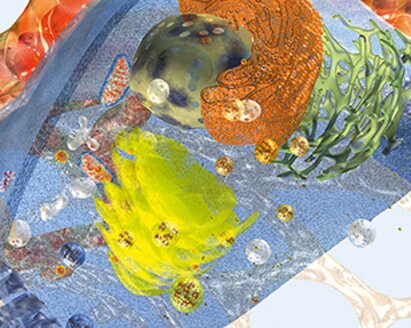You are currently viewing:
Medela - English
You can select an alternative Medela website in one of these countries:
Products
Shop now
Rent now
Pumps
Extra Pump Parts
Maternity & pumping bras
Bottles & bags
Cleaning
Breast care
Special feeding needs
NICU
Bottles & bags
Hospital-only products
Breast milk storage bottles
Easy Pour Breast Milk Storage Bags
Cooler Bag breast milk storage
Spare Teats
Calma™ Feeding System
Breast Milk Storage Bottle Spare Parts
Cleaning
Quick Clean™ Microwave bags
Quick Clean™ breast pump & accessory wipes
Quick Clean™ Breast Pump & Accessory Sanitizer Spray
Breast care
Breast massage oil
Organic Nipple Cream
Purelan™ lanolin cream
Hydrogel pads
Milk Collection Shells
Contact™ Nipple Shields
Ultra-breathable nursing pads
SoftShells™ breast shells
TheraShells™ Breast Shells
Hands-free Electric
Freestyle™ Hands-free Breast Pump
Pump In Style® Hands-free double electric breast pump
Swing Maxi™ Hands-free Electric Breast Pump
Classic Electric
Pump In Style® with MaxFlow™ Breast Pump
Swing Maxi™ double electric breast pump
Sonata® Smart double electric breast pump
Symphony - No 1 Hospital Pump
Symphony PLUS® breast pump
PersonalFit™ PLUS breast shield
Symphony® breast milk initiation kit
Symphony Single Pumping Kit
Pediatric Breast Pump Kit with Harmony
Symphony / Harmony® Breast Milk Initiation Kit
Symphony® Breast Pump Kit with Colostrum Protector
Breast Pump Kit with Harmony & 80mL Container
Tubing
Replacement tubing for Freestyle Flex™ and Swing Maxi™ breast pump
SNS™ Tubing & Valve Set
Tubing for Medela Hands-free collection cups
Power units
Swing Maxi™ power adaptor
Pump In Style® Battery Pack
Pump In Style® with MaxFlow™ power adaptor
Hospital-only products
Reusable bottles
80 mL Breast Milk Containers
35ml Collection Container
250ml Breast Milk Container
Colostrum Protector
Enteral Feeding
Medela Enteral Feeding Pump
Medela Extension Sets with ENFit® Connectors
Medela Feeding Tubes with ENFit® Connectors
Medela GraviFeed® Syringes with ENFit® Connectors
Medela Low Dose Dual Cap
Medela Syringes with ENFit® Connectors
Medela TwistLok® Enteral Extension Sets
Medela TwistLok® Enteral Extension Sets with Medication Port
Medela TwistLok® Enteral Straws (for feeding preparation)
Medela TwistLok® Enteral Syringes
Medela TwistLok® G-Tube Extension Sets (for gastric feeding)
Medela TwistLok® GraviFeed® Syringe Lids
Medela TwistLok® GraviFeed® Syringe Primers
Medela TwistLok® GraviFeed® Syringes
Medela TwistLok® Polyurethane Enteral Feeding Tubes
Medela TwistLok® PVC Enteral Feeding Tubes
Medela TwistLok® Silicone Enteral Feeding Tubes
-
Products
- Products
- Shop now
- Rent now
-
Pumps
- Pumps
- Hands-free Electric
- Classic Electric
- Manual
-
Symphony - No 1 Hospital Pump
- Symphony - No 1 Hospital Pump
- Symphony PLUS® breast pump
- PersonalFit™ PLUS breast shield
- Symphony® breast milk initiation kit
- Symphony Single Pumping Kit
- Pediatric Breast Pump Kit with Harmony
- Symphony / Harmony® Breast Milk Initiation Kit
- Symphony® Breast Pump Kit with Colostrum Protector
- Breast Pump Kit with Harmony & 80mL Container
- Extra Pump Parts
- Maternity & pumping bras
- Bottles & bags
- Cleaning
- Breast care
- Special feeding needs
-
NICU
- NICU
-
Enteral Feeding
- Enteral Feeding
- Medela Enteral Feeding Pump
- Medela Extension Sets with ENFit® Connectors
- Medela Feeding Tubes with ENFit® Connectors
- Medela GraviFeed® Syringes with ENFit® Connectors
- Medela Low Dose Dual Cap
- Medela Syringes with ENFit® Connectors
- Medela TwistLok® Enteral Extension Sets
- Medela TwistLok® Enteral Extension Sets with Medication Port
- Medela TwistLok® Enteral Straws (for feeding preparation)
- Medela TwistLok® Enteral Syringes
- Medela TwistLok® G-Tube Extension Sets (for gastric feeding)
- Medela TwistLok® GraviFeed® Syringe Lids
- Medela TwistLok® GraviFeed® Syringe Primers
- Medela TwistLok® GraviFeed® Syringes
- Medela TwistLok® Polyurethane Enteral Feeding Tubes
- Medela TwistLok® PVC Enteral Feeding Tubes
- Medela TwistLok® Silicone Enteral Feeding Tubes
- Waterless Milk Warmer™
- 250ml breast milk bulk preparation system
- Breast Milk Transfer Lid
- Disposable Inserts for Waterless Milk Warmer™
- Articles
- Medela Family
- Services
- Hospital & Healthcare Professionals






